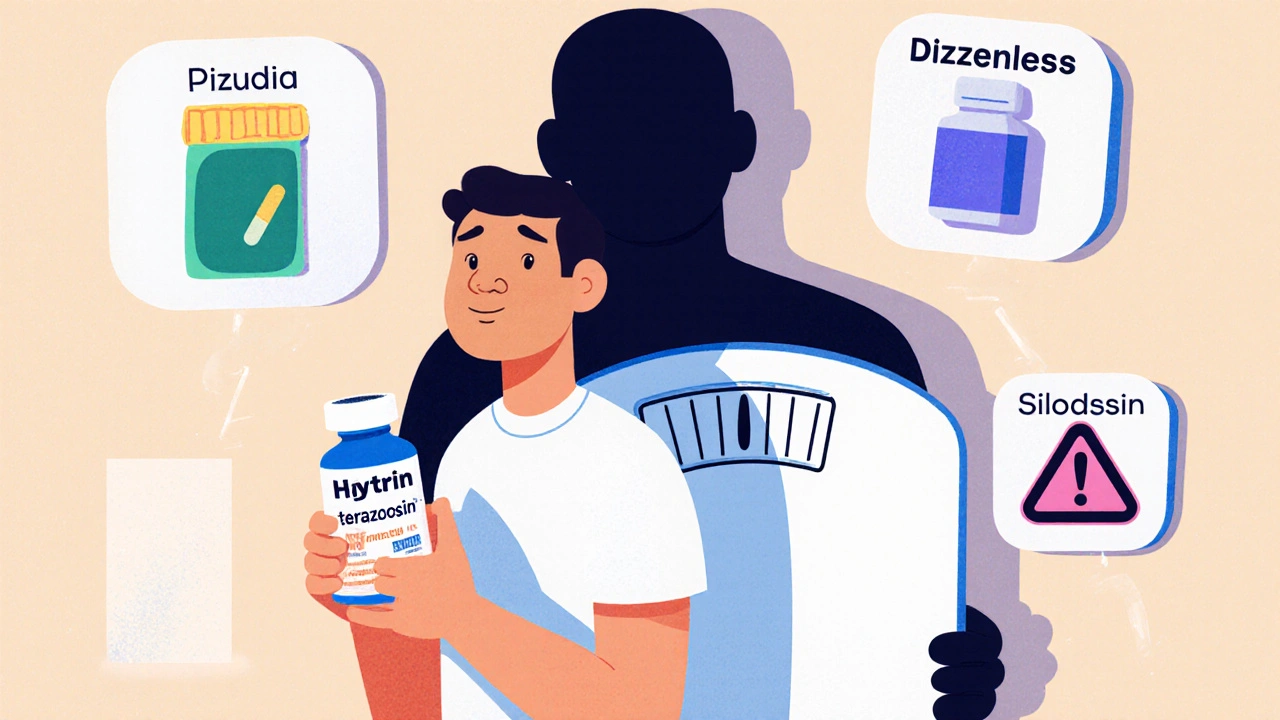Hytrin: What It Is, How It Works, and What You Need to Know
When you hear Hytrin, a brand name for the medication terazosin, used to treat high blood pressure and enlarged prostate. Also known as terazosin, it’s one of the older alpha-blockers still commonly prescribed today. Unlike newer drugs that target the heart or kidneys, Hytrin works by relaxing muscles in your blood vessels and prostate. That means less pressure pushing against artery walls and easier urine flow—two very different problems solved with the same pill.
Hytrin doesn’t just lower blood pressure. It’s also one of the few drugs approved for benign prostatic hyperplasia, a non-cancerous enlargement of the prostate gland that affects most men over 50. This condition can cause frequent urination, weak stream, or waking up at night to pee. Hytrin eases those symptoms by relaxing the prostate and bladder neck muscles, not by shrinking the gland. That’s why it’s often paired with other treatments like 5-alpha reductase inhibitors for long-term control. Many people start Hytrin at night because the first dose can cause dizziness or fainting—especially when standing up too fast. That’s not a bug, it’s a feature of how alpha-blockers work. Your body needs time to adjust.
Hytrin is rarely the first choice for high blood pressure anymore. Newer drugs like ACE inhibitors or calcium channel blockers have fewer side effects and better long-term outcomes. But for men with both high blood pressure and prostate issues, Hytrin is still a practical, low-cost option. It’s also used off-label for conditions like Raynaud’s phenomenon and certain types of kidney stones, though evidence is limited. What matters most is whether your body responds without major side effects. Fatigue, dizziness, and nasal congestion are common. Heart palpitations or swelling in the ankles? That’s your sign to talk to your doctor.
It’s not a miracle drug, but for thousands of men, Hytrin has meant fewer bathroom trips at night and less stress over blood pressure spikes. If you’re on it, you know the routine: take it at bedtime, rise slowly, and watch for those first-week side effects. If they fade, you’ve probably found a good fit. If they don’t, there are alternatives—like tamsulosin, a more targeted alpha-blocker that’s less likely to cause dizziness—but none work quite the same way for both heart and prostate.
Below, you’ll find real guides from people who’ve used Hytrin, compared it to other meds, or dealt with its side effects. Whether you’re just starting out or switching off it, these posts cover what actually happens when you take this drug day after day—not just what the pamphlet says.

Compare Hytrin (Terazosin) with Alternatives for BPH and High Blood Pressure
Compare Hytrin (terazosin) with modern alternatives like tamsulosin and silodosin for BPH and high blood pressure. Learn which drugs are safer, more effective, and now recommended by guidelines.
October 30 2025